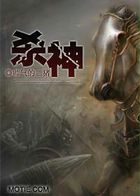Of course, the courts were not entirely without blemishes. In the matter, for example, of making no distinction of persons some of the early justices, in seeking to avoid Scylla, came dangerously near to Charybdis. Imagining that their mission was to eradicate the conceptions and habits which had been created and fostered by serfage, they sometimes used their authority for giving lessons in philanthropic liberalism, and took a malicious delight in wounding the susceptibilities, and occasionally even the material interests, of those whom they regarded as enemies to the good cause. In disputes between master and servant, or between employer and workmen, the justice of this type considered it his duty to resist the tyranny of capital, and was apt to forget his official character of judge in his assumed character of social reformer.
Happily these aberrations on the part of the justices are already things of the past, but they helped to bring about a reaction, as we shall see presently.
The extreme popularity of the Justice of Peace Courts did not last very long. Their history resembled that of the Zemstvo and many other new institutions in Russia--at first, enthusiasm and inordinate expectations; then consciousness of defects and practical inconveniences; and, lastly, in an influential section of the public, the pessimism of shattered illusions, accompanied by the adoption of a reactionary policy on the part of the Government.
The discontent appeared first among the so-called privileged classes. To people who had all their lives enjoyed great social consideration it seemed monstrous that they should be treated exactly in the same way as the muzhik; and when a general who was accustomed to be addressed as "Your Excellency," was accused of using abusive language to his cook, and found himself seated on the same bench with the menial, he naturally supposed that the end of all things was at hand; or perhaps a great civil official, who was accustomed to regard the police as created merely for the lower classes, suddenly found himself, to his inexpressible astonishment, fined for a contravention of police regulations! Naturally the justices were accused of dangerous revolutionary tendencies, and when they happened to bring to light some injustice on the part of the tchinovnik they were severely condemned for undermining the prestige of the Imperial authority.
For a time the accusations provoked merely a smile or a caustic remark among the Liberals, but about the middle of the eighties criticisms began to appear even in the Liberal Press. No very grave allegations were made, but defects in the system and miscarriages of justice were put forward and severely commented upon. Occasionally it happened that a justice was indolent, or that at the Sessions in a small country town it was impossible to form a quorum on the appointed day. Overlooking the good features of the institution and the good services rendered by it, the critics began to propose partial reorganisation in the sense of greater control by central authorities. It was suggested, for example, that the President of Sessions should be appointed by the Government, that the justices should be subordinated to the Regular Tribunals, and that the principle of election by the Zemstvo should be abolished.
These complaints were not at all unwelcome to the Government, because it had embarked on a reactionary policy, and in 1889 it suddenly granted to the critics a great deal more than they desired. In the rural districts of Central Russia the justices were replaced by the rural supervisors, of whom I have spoken in a previous chapter, and the part of their functions which could not well be entrusted to those new officials was transferred to judges of the Regular Courts. In some of the larger towns and in the rural districts of outlying provinces the justices were preserved, but instead of being elected by the Zemstvo they were nominated by the Government.
The regular Tribunals likewise became acclimatised in an incredibly short space of time. The first judges were not by any means profound jurists, and were too often deficient in that dispassionate calmness which we are accustomed to associate with the Bench; but they were at least honest, educated men, and generally possessed a fair knowledge of the law. Their defects were due to the fact that the demand for trained jurists far exceeded the supply, and the Government was forced to nominate men who under ordinary circumstances would never have thought of presenting themselves as candidates. At the beginning of 1870, in the 32 "Tribunaux d'Arrondissement" which then existed, there were 227 judges, of whom 44 had never received a juridical education.
Even the presidents had not all passed through a school of law. Of course the courts could not become thoroughly effective until all the judges were men who had received a good special education and had a practical acquaintance with judicial matters. This has now been effected, and the present generation of judges are better prepared and more capable than their predecessors. On the score of probity I have never heard any complaints.
Of all the judicial innovations, perhaps the most interesting is the jury.
At the time of the reforms the introduction of the jury into the judicial organisation awakened among the educated classes a great amount of sentimental enthusiasm. The institution had the reputation of being "liberal," and was known to be approved of by the latest authorities in criminal jurisprudence. This was sufficient to insure it a favourable reception, and to excite most exaggerated expectations as to its beneficent influence. Ten years of experience somewhat cooled this enthusiasm, and voices might be heard declaring that the introduction of the jury was a mistake.















